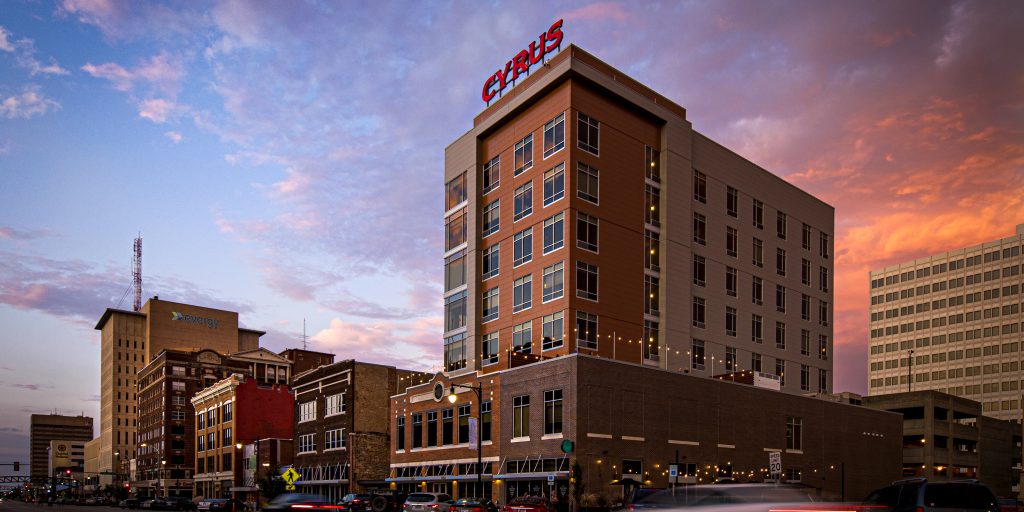To bring in talent and diversify, Kansas community attracts remote workers with cash incentive
The modern era of digital nomads and remote workers presents opportunity for local governments as much it’s brought on unforeseen challenges—like the need for high speed connectivity and an evolving economic landscape, as fewer people commute to brick-and-mortar offices.
One community in Shawnee County, Kan. has capitalized on the migration, which was set into motion by the pandemic and the subsequent “great resignation,” by offering a monetary incentive to remote workers who choose to relocate there.
“Throughout 2020 and into 2022, Topeka, Kansas—a mid-sized community where the median house price is $132,500—offered up to $10,000 to remote workers that relocated through the Choose Topeka program,” a statement about the initiative says.
Promoting the program, which is funded by a sales tax, is an easy-to-navigate website that displays images and describes what the city has to offer—its attractions, educational opportunities, neighborhood descriptions, diversity and culture, and lower-than-average cost of living. To qualify, prospective residents need to be remote full-time employees with a company that’s headquartered outside Shawnee County, and purchase or rent a primary residence within a year of moving.
Only one incentive is given per household and about 30 people are selected annually, according to Bob Ross, senior vice president of marketing and communications at the Greater Topeka Partnership, which manages the initiative.
“We’re looking to talk to people largely from the coast who have a perception of what Topeka, and Kansas, is. We have to overcome that bias,” Ross said. While the community is mostly homogenous and about 80 percent white, with a large Hispanic population, “Topeka has a very proud, very inclusive heritage. … The city has continuously been a change agent in the state, and across the country, being the home of Brown vs. Board.”
Initially, Ross said the program was conceptualized in 2019 as a way to meet the talent needs of local businesses. As the city’s business community has expanded, its population has remained steady at around 175,000 people for the last two decades. Today, 40 percent of those who work in Topeka don’t live in Shawnee County, and while the community has a low unemployment rate of 2.9 percent, there are currently about 6,000 open jobs and around 1,000 people looking for work.
“We’ve got jobs, we’ve got low costs of living, we’ve got great schools. There’s a lot of foundational things that are going right in the city, we just need to overcome the educational gap,” Ross said. When the program launched, “It immediately caught a lot of attention—and right out for the gate, people asked, ‘are you doing anything to attract remote workers?’ Then March 2020 happened. We saw quickly this new generation of very mobile workers with great salaries.”
Since then, more than 6,000 prospective new residents have submitted applications to move to the city; about 70 were selected from 19 states—most between 25 to 45 years of age, making around $60,000 to $70,000 per year. Through a partnership with AirBnB, prospective residents can stay overnight in the city free of charge to see if it’s a good fit. Of those who’ve made the move, Ross said, 46 have purchased homes and 24 lease either an apartment or house.
“We expected about a six-times return on investment through this program, and we’ve seen a 14-times return,” Ross said, estimating the total economic impact from the new residents over the first year to be around $3.8 million. Additionally, a few businesses in the community, including a few co-working spaces, have opened or adapted to accommodate the needs of remote workers.
Beyond the economic impact, Ross said the program is intended to bring in people who will make the Topeka community a more vibrant, diverse and pleasant place to live. Candidates are selected equitably to represent a diverse and forward-thinking population.
“The one common factor, as we interview some of these people with our team, there is an adventurous spirit, and they’re community minded—they’re drawn to the city precisely because it’s a community that’s not fully formed,” Ross said. “The number one thing we’re looking for is ‘are they going to be community-minded, and invested to make a difference?’ That’s the value on-return we get—the intellectual capital.”
Looking ahead, Ross said he anticipates the program will continue for as long as there’s a need.
“We reassess it every year. It’s still so competitive right now for talent,” Ross said.





















